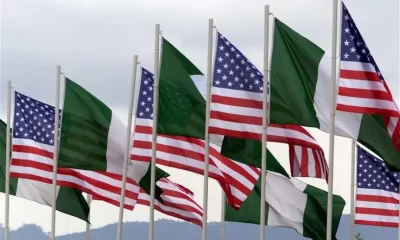National Issues
A broke nation and the magic of tissue culture -By Greg Odogwu

To be sincere, I do not see why Nigerians would start screaming murder when President Muhammadu Buhari hinted that the country was broke. This should not have come as a surprise. If we told ourselves the truth, the handwriting appeared boldly on the wall late last year when the price of crude oil – our sole revenue earner – took a nosedive in the global market. And if we refused to psychologically adapt and move on to survival mode, then we have no one to blame.
Nobody had any reason to believe the doublespeak of the then Minister of Finance and Coordinating Minister for the Economy, Dr Ngozi Okonjo-Iweala, when she tried to confuse us by saying that Nigeria was not broke, but was actually like a parent who had a job but had no immediate cash at hand. Really?
Therefore, for once, let us learn to hear it the way it is. The only mild discomfiture here is that Buhari blew the whistle in far away India. Nevertheless, the response of the Presidency to the widespread outrage over the President’s Indian affair is apt. We need to call a spade a spade. Simple.
Yet, I am worried because considering the type of government we run, there are two tragedies that face us. The first is that the man in the street takes the whole weight of a bad economy. The second is that our leaders, the ones we trust to manage our scarce resources and navigate us out of the doldrums, may steer us into more troubled waters. In a nutshell, we are doomed if today’s government continues in the old ways we are used to doing things.
Now, to the first tragedy. There is nothing as saddening as listening to many a public commentator who screams that in order to solve our economic problem the government should remove the subsidy on petrol. This goes to show that what we are used to is push the problem to the common man to suffer for sins he never committed. To these analysts, when the government removes subsidy, it will free up some monies with which to run the government and help the masses. What an irony!
Let us be reminded that when subsidy is removed, the common man who has a meagre income can no longer afford to survive. The money “freed up” now flies up the ladder to the rich and powerful who appropriate them as they want.
This is in contrast to standard reaction to recession in saner climes. Some years ago, when the world faced recession, the US government worked to stabilise the housing market and stem the rising tide of foreclosures which were the major outcome of the downturn. According to www.whitehouse.org, “The Treasury worked with the Federal Reserve to help reduce mortgage interest rates, resulting in lower payments for the millions of Americans who refinanced their homes. We also set up a programme that helped responsible homeowners facing foreclosure get more manageable mortgage payments.”
To cut a long story short, the American government designed tax relief and income support for the millions of Americans that faced untold hardship during the troubled times. Note that it did not create more financial burden for the people rather, it sought to alleviate such. The same strategy was also implemented by the United Kingdom during the last recession. It taxed its rich 50 per cent in order to stabilise the system. The question then is, can Nigeria tax the rich? Going by past experiences, our government rather taxes the poor.
The second tragedy is that the current administration may make mistakes in a frenzied bid to save the economy. It may miss the critical linkages it should create. We remember that ours is a country where every government project, programme or policy is always viewed against ethnic and religious politics. Every politician has the next election in mind when designing any project. So, the Muhammadu Buhari administration may give bailout to the wrong people, and inject relief packages into the most absurd sectors, just for political expediency.
In a recession, the standard practice is for the government to give bailout to companies who are into production, manufacturing and job creation. The bailout should not be given for recurrent expenditures but for capital expenditures so as to develop infrastructure, in order to boost the informal sector, which for a developing country like ours employs a better part of the population.
The concept that we need to diversify our economy is a no-brainer. Everyone knows that in order for us to survive the current situation we need to embrace other ways of making money apart from crude oil, which had obfuscated us for too long. The rocket science is in making long-term plans and watertight ones too.
This is where the tissue culture comes in. The biotechnology industry has a potentially huge sub-sector known as the tissue culture which can employ hundreds of thousands of Nigeria if we play our cards right. Metaphorically speaking, it is our way out.
I discovered that over here, when politicians tell you they created jobs, they just succeeded in putting youths under the government’s payroll. They sow uniforms for them and give them monthly stipends. In reality, this is not employment creation because those jobs are not sustainable. These youths do not produce anything; they just collect salaries. It is an extension of our rent-seeking culture.
With the deployment of bailout to strategic production sectors, especially agro-related ones, the promise of job creation may be fulfilled, but without it, we may just kiss the future goodbye.
Tissue culture can supply the agricultural sector with the needed stocks and seedlings, and then create employment, and encourage foreign investors to come into a thriving economy. And this must majorly go to the private sector.
There is a current paradigm which must serve as a signpost for us. Recently, the Federal Capital Territory Administration, Department of Science and Technology and Biocrops Biotechnology Limited, signed a Memorandum of Understanding, on plantlets and crop multiplication and commercialisation using tissue culture technology. Biocrops is the only private sector tissue culture outfit in Nigeria.
The joint venture will see the company helping the FCTA to build its human capacity on tissue culture technology for improved seedlings for farmers, while the FCTA Science Technology department on the other hand, will provide the lab space and office for the project.
This may seem like an ordinary collaboration until we look at how this is already driving Nigeria’s agro industry. The company has already got a contract to supply 1,000,000 plantlets of sugarcane to Nigeria’s foremost sugar estate, Sunti Golden Sugar Company. Let it be noted that before Sunti gave the supply contract to Biocrops/FCTA, it was struggling to meet up with its vision of getting sugarcane plantlets from outside Nigeria, which was proving an impossible mission.
Meanwhile, Nigeria desperately needs to increase its local production of sugar because sugar importation is costing the country so much. According to records, only about 10 per cent of total sugar consumption is locally produced, while up to 90 per cent is accounted for by importation. Nigeria is not only losing $3.4bn to importation of sugar, it is also losing 4000 jobs to the country from where it imports sugar.
The irony is that those countries still depend on biotechnology’s tissue culture to give Nigeria sugar.
So, let us do the mathematics. If all the states of the federation gives incentives, to agro-based tissue culture businesses, and then give bailout to sugar and rice estates, they will automatically demand plantlets, which will then employ tens of thousands of Nigerian youths in a sustainable value chain that will do the country good in these desperate times.











